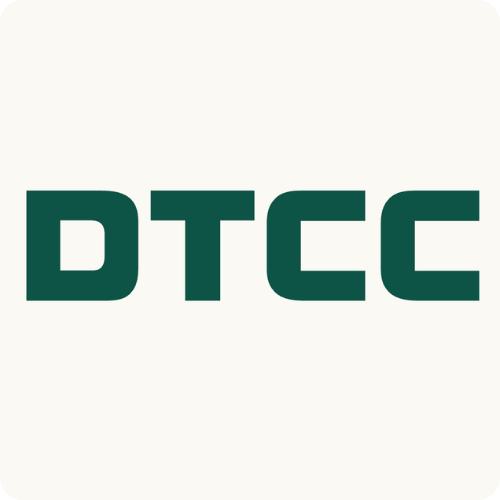
Demia
Demia is a climate infrastructure company that provides a sophisticated technology platform for securing and verifying data in environmental markets, particularly the carbon market. The company’s mission is to increase trust, reduce friction, and unlock value by creating a transparent and auditable foundation for climate data.
The platform is centered around a "Zero-Trust Data Fabric," which ensures that environmental data—whether from on-site IoT sensors or manual inputs—is protected and verifiable from its source. This system creates a secure chain of custody for information, streamlining the complex processes of measurement, reporting, and verification (dMRV).
As a key partner in the Hedera ecosystem, Demia leverages the Hedera Guardian, an open-source framework for auditable ESG assets. This integration allows Demia to anchor its verified data to the Hedera public ledger, creating an immutable record of a project's environmental impact. This is crucial for their clients—including carbon project developers, auditors, and corporate purchasers—who require undeniable proof of climate action to meet regulatory requirements and investor expectations.
Project Information
Related Projects

Citadel Wallet is a specialized hardware wallet designed to offer robust security and a seamless user experience for individuals interacting with the Hedera Hashgraph network. Its development was supported by HeadStarter's Builder Labs.
It features a full suite of secure storage options focused on providing secure storage and transaction capabilities for Hedera's native cryptocurrency, HBAR, as well as Hedera Token Service (HTS) tokens and non-fungible tokens (NFTs).
The Citadel Wallet device emphasizes high-grade security, incorporating features such as Common Criterial Evaluation Assurance Level 6+ (EAL8+) certified Secure Element and a secure microprocessor featuring Trust Zone technology to protect users' private keys offline.
Citadel Wallet is engineered to support the full spectrum of Hedera network services, including native staking, interaction with smart contracts, and management of various Hedera-based assets. It also features a user-friendly interface and offers both USB-C and secure Bluetooth connectivity for flexible interaction with companion applications and decentralized applications (DApps) within the Hedera ecosystem.

Capturiant, founded in 2022, is a Houston-based company that operates as a global environmental asset authenticator, registry, and marketplace. The company's mission is to bring efficiency, transparency, and trust to the historically opaque and fragmented environmental asset markets, including carbon credits.
The core of Capturiant's service is an integrated platform that manages the entire lifecycle of environmental assets. This includes the authentication and validation of projects that generate credits, the minting and registration of these credits on a digital registry, and a regulated exchange for trading them. By creating a transparent, private-sector-driven model with clear fee structures and robust standards, Capturiant aims to increase confidence and liquidity in the market.
Capturiant's entire platform is built on the Hedera network. The company utilizes Hedera's distributed ledger technology (DLT) to create an immutable and auditable record for every environmental asset it registers. By leveraging the Hedera Consensus Service, Capturiant ensures the integrity and transparency of all transactions, from the minting of a credit to its final retirement.
.png)
Hitachi America, Ltd., a subsidiary of the Japanese multinational conglomerate Hitachi, Ltd., is headquartered in Santa Clara, California. The company serves as a key component of Hitachi's global operations, driving innovation and business development across the Americas.
Hitachi America and its subsidiaries offer a vast and diverse portfolio of products and services organized under three core business structures: "Digital Systems & Services," "Green Energy and Mobility," and "Connective Industries." This includes enterprise-grade data storage and management solutions, cloud applications, and AI-driven platforms.
Hitachi America joined the Hedera Governing Council in 2024. As a council member, Hitachi lends its extensive industrial and technological expertise to the governance of the DLT. The company has explicitly stated its intent to create proof-of-concept solutions on Hedera, focusing initially on end-to-end supply chain management and sustainability initiatives. By leveraging Hedera's secure, scalable, and energy-efficient network, Hitachi aims to enhance transparency and accountability in complex industrial workflows, from manufacturing and logistics to clean energy and IT/OT systems.

The Depository Trust & Clearing Corporation (DTCC) provides post-trade clearing and settlement services that ensure the stability and efficiency of trading activity. As one of the premier financial market infrastructures over the past 50 years, DTCC processes trillions of dollars in securities transactions daily, offering a range of services that automate, centralize, and standardize the processing of financial transactions to mitigate risk and reduce costs.
DTCC’s Digital Assets is a business unit dedicated to bridging the gap between traditional financial infrastructure and the emerging digital asset ecosystem. Its key services include the DTCC Digital Launchpad, an open ecosystem for collaboration on digital asset adoption, DTCC ComposerX, an end-to-end platform for managing the entire lifecycle of digital assets, and the Collateral AppChain, which provides scalable, tokenized collateral management.
As a founding premier member of the Linux Foundation's LF Decentralized Trust alongside Hedera, DTCC is actively involved in shaping the future of open-source, decentralized technologies.
